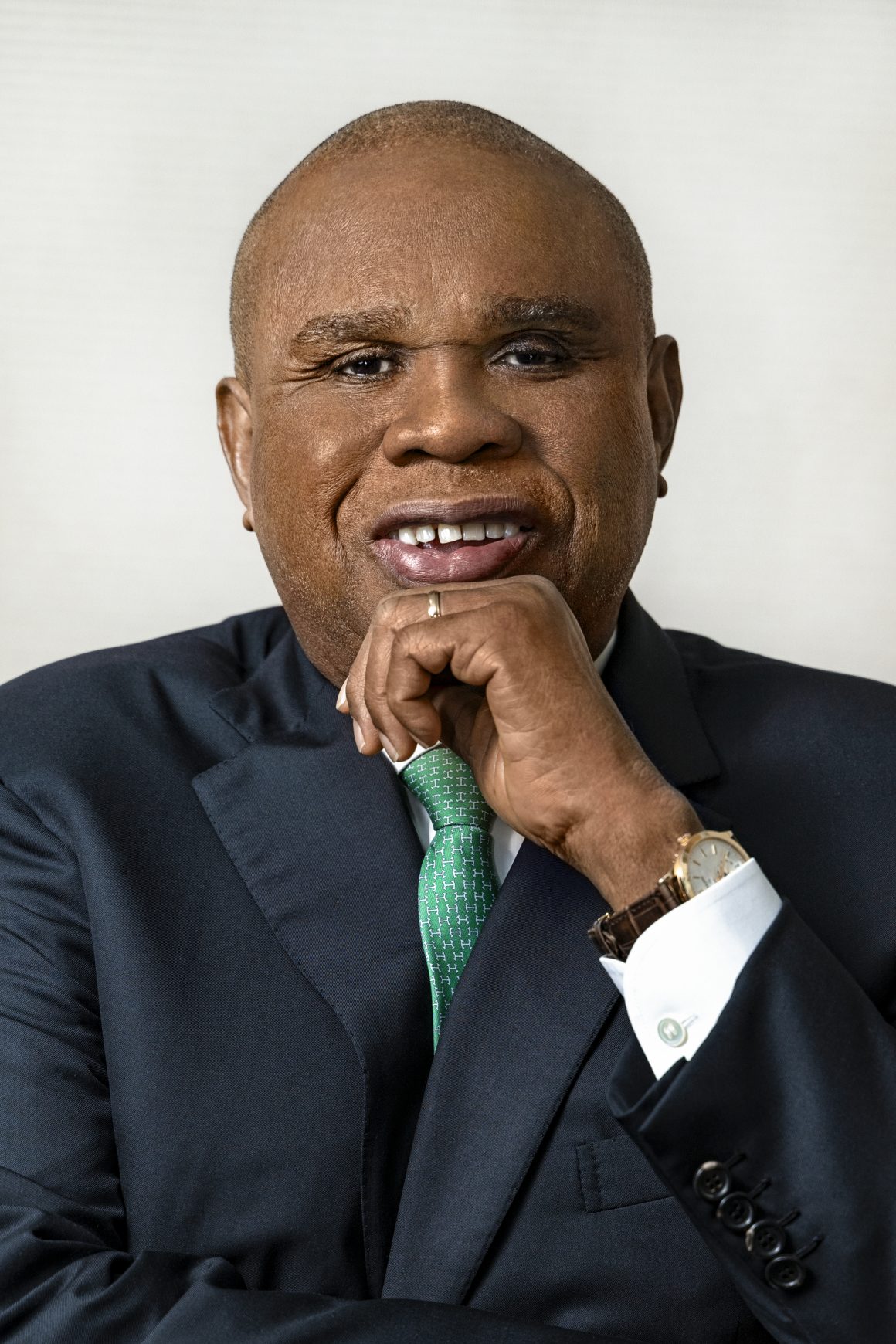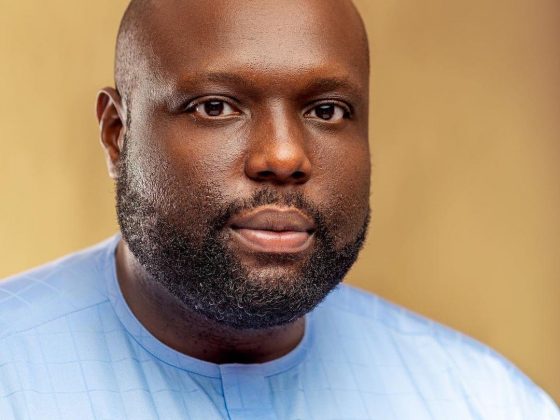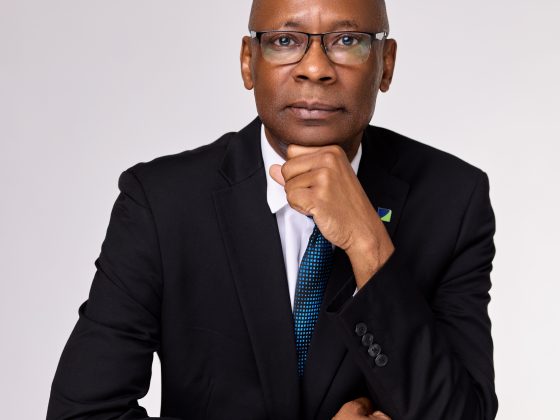Few leaders have left an indelible mark on Africa’s economic landscape like Professor Benedict Oramah, the President and Chairman of the Board of Directors of African Export-Import Bank (Afreximbank). A distinguished economist and financier, Oramah has spent nearly three decades shaping the trajectory of the continent’s trade and financial integration. Since assuming the presidency of Afreximbank in 2015, he has overseen a staggering expansion of the bank’s assets from $6 billion to $31.1 billion as at 2022 cementing its role as a driving force behind Africa’s economic transformation.
Under his stewardship, Afreximbank has championed intra-African trade, facilitated strategic partnerships, and played a critical role in implementing the African Continental Free Trade Agreement (AfCFTA)—an ambitious initiative designed to position Africa as a unified economic powerhouse. His expertise and visionary leadership have earned him numerous national and international accolades, including Nigeria’s Commander of the Order of the Niger (CON) and honours from governments in Cameroon, the Republic of Congo, and Russia. More recently, he was among the distinguished recipients of the Titan of the Year award at the prestigious THISDAY Awards, a testament to his profound contributions to Africa’s economic and financial evolution.
Beyond his role at Afreximbank, Oramah’s influence extends across several high-level advisory boards, including the Arab-Africa Trade Bridges (AATB), the African Union Covid-19 Response Fund, and the Intra-African Trade Fair (IATF) Advisory Council. His insights are sought after globally, underscoring his position as a thought leader on trade, finance, and economic development.
In this interview with Funke Babs Kufeji, Professor Oramah reflects on his journey, the progress of African trade, and his vision for the future.
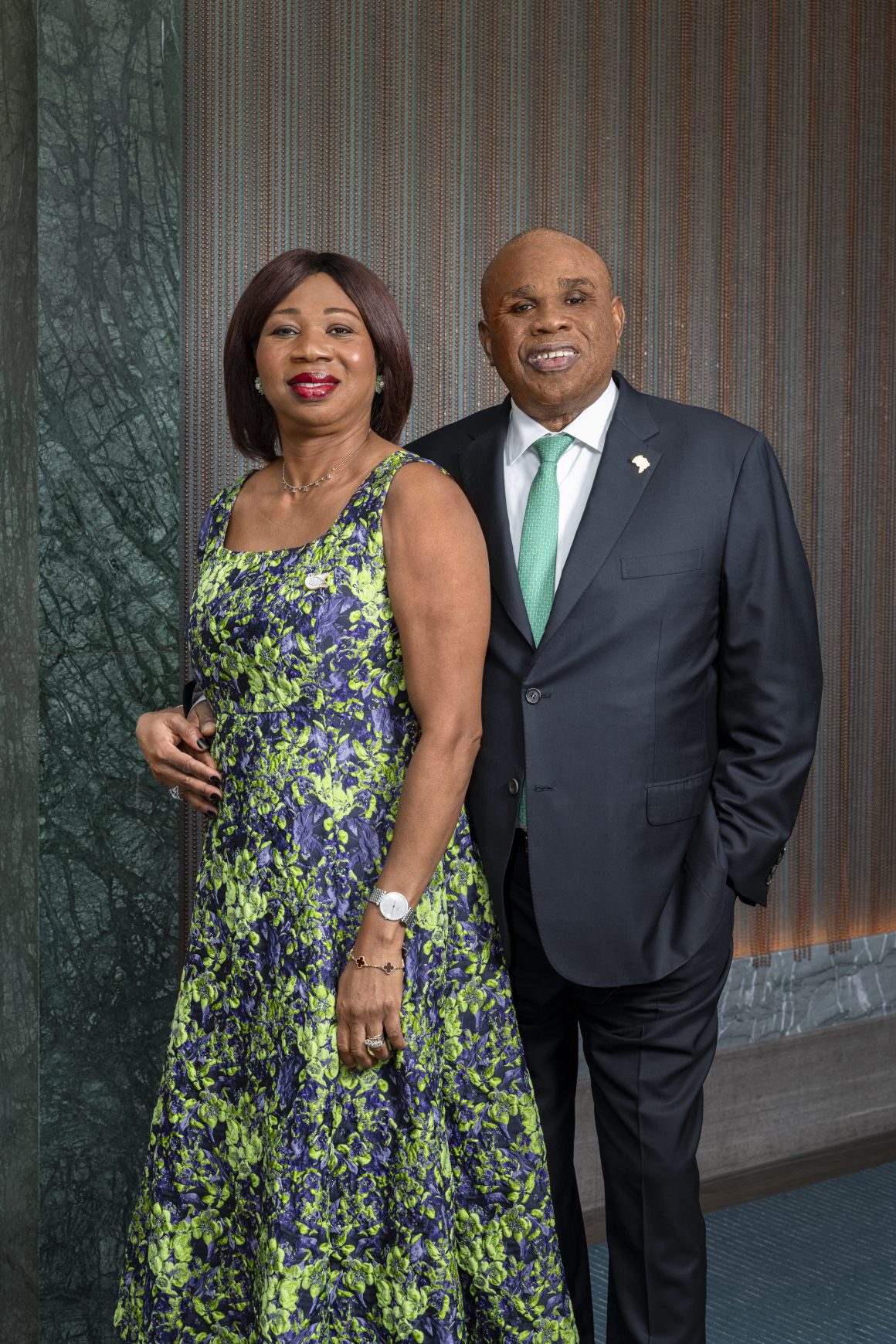
You are the President and Chairman of African Export–Import Bank (Afreximbank), a role you assumed in 2015 after serving in various leadership positions at the Bank since 1994. Please give us a brief insight into your journey to the top at Afreximbank.
My journey to the top at Afreximbank has been hugely fulfilling. For someone passionate about Africa’s development and economic emancipation, to be part of an institution that has become central to this continental quest is a privilege I cannot take for granted. Every day at the Bank has been a mixture of challenges, new opportunities, and adrenaline-filled moments. As we tackled various issues, I was always driven by the mission to create innovative solutions that could make a lasting impact on our continent and globally.
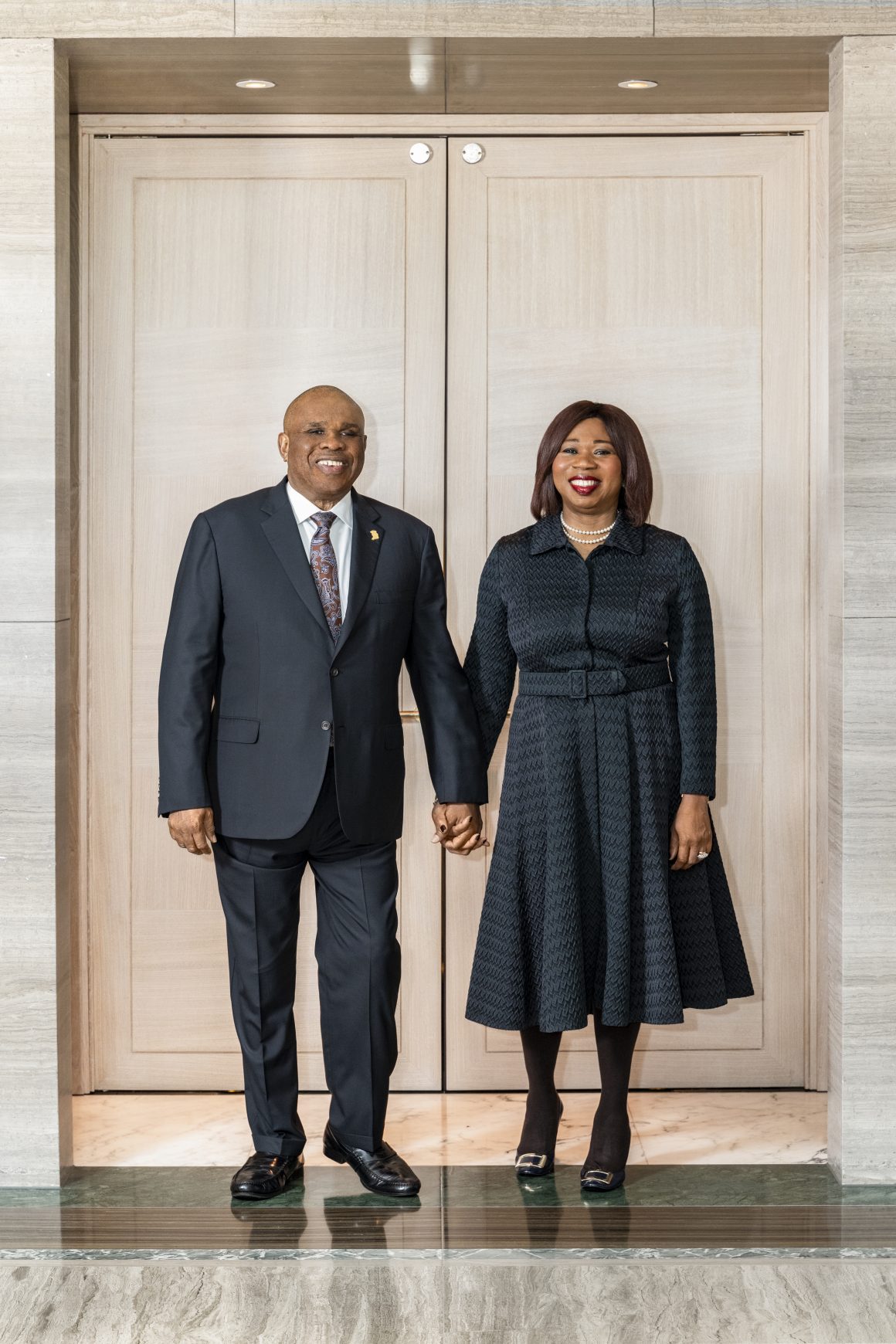
How will you describe your 30 and 10 years at Afreximbank and as President and Chairman of the Board of Directors at Afreximbank, respectively, in 3 words?
Transformation – I have witnessed how Africa’s trade landscape has substantially evolved over three decades. The work we have done—especially in creating the Pan-African Payment and Settlement System (PAPSS) and supporting the African Continental Free Trade Area (AfCFTA)—has been nothing short of transformational, not just for Afreximbank but also for the entire continent.
Resilience – We’ve had to break down deeply entrenched systems and face resistance from those who benefited from the old ways. However, with every obstacle — from policy impediments to economic setbacks – we consistently persevered.
Visionary – My leadership has always been driven by a vision of building a more united African continent. By acting strategically and quickly, Afreximbank has become a critical enabler of the continent’s transformation, creating foundations for Africa’s future growth and economic prosperity.
As the President and Chairman of the Board of Directors of Afreximbank, what would you consider your greatest achievement in the last 10 years thus far, and your biggest challenge?
Our most important achievement in the past 10 years has been the restoration of the belief in self and Africa’s ability to use its own resources to deal with global problems on our own terms. We now have what it takes to chart the course of the continent’s economic development journey.

In 1963, in the early years of independence, African leaders took important decisions, namely to establish initiatives like a continental free trade area, a Pan-African payment and clearing union, trade fairs, and solutions for transit issues. We are proud that today, after 60 years. Afreximbank has played a major role in making those visions a reality, by supporting the AfCFTA, and establishing landmark initiatives including the Pan African payments and settlements system (PAPSS), and the flagship Intra-African Trade Fair (IATF).
We have implemented our Diaspora strategy following the declaration of the African Union, making the Diaspora its sixth region, and with 12 out of 15 CARICOM member states already signed up, Afreximbank has established itself truly as the Global Africa bank.
We have also made great strides towards transforming Africa’s healthcare sector, an initiative very close to my heart, through building African Medical Centres of Excellence (AMCE) across Africa to address the rise in non-communicable diseases (NCDs), such as cancer, cardiovascular diseases, and haematological disorders, and reduce the need for medical tourism to foreign countries by providing high-quality healthcare and healthcare training and research on the continent.
A particular highlight I would like to mention was Afreximbank’s response to the COVID 19 pandemic. When African and Caribbean economies struggled to access essential medical supplies, Afreximbank and partners developed the African Medical Supplies Platform (AMSP), to pooled platform for the procurement of COVID-19 containment items, also providing specific financial support and directly procuring vaccinations for the continent. I am delighted that the success story of Africa’s and Afreximbank’s response to the Covid-19 is now the subject of a newly published book titled “Riding the storm: The untold story of Africa’s response to the Covid-19 pandemic,” and a soon to be released documentary.
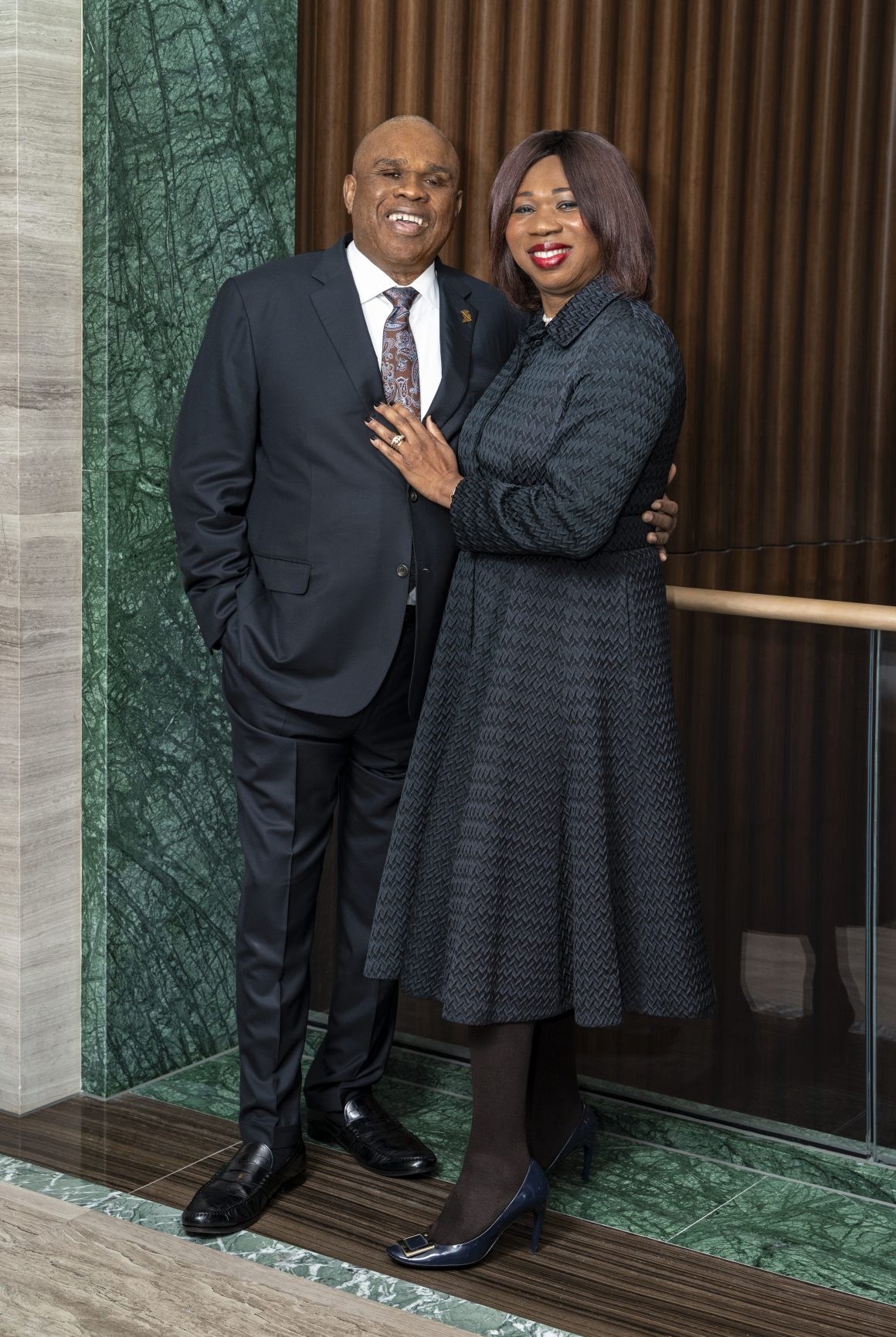
The finance world has changed significantly over the last ten years since you’ve been President and Chairman of Afreximbank. Which changes do you think have impacted Afreximbank the most?
Afreximbank’s operations have naturally been influenced by the impacts of the Ukraine crisis and other geopolitical tensions leading to disruptions in trade and increased commodity prices, which have complicated the economic landscape for African nations. The challenges have further strengthened Afreximbank’s resolve to enhance intra-African trade through various initiatives, including a commitment to double its financing of intra-African trade from $20 billion in 2021 to $40 billion by 2026.
What strategies are you implementing to foster economic growth and development in Nigeria and Africa amidst current global challenges?
Nigeria is the second largest shareholder of the Bank, after Egypt. The country continues to play a critical role in the growth and success story of the Bank and, since its inception in 1993, the Bank has disbursed over US$49 billion in funded and unfunded support to both public and private sector entities in the country. This has had a huge developmental impact on the country’s economy and international trade sector.
Facilitating Trade and Industrialization:
Afreximbank is investing in large-scale trade-enabling infrastructure and other projects to support African economies and competitiveness in global trade.
Supporting Health Sector Growth through the African Medical Center of Excellence (AMCE) in Abuja:
The first African Medical Center of Excellence (AMCE) is being constructed in Abuja. The 500-bed quaternary level medical facility will offer a wide range of services and specializations including oncology, cardiology, haematology, and general care capabilities. It will also provide a full range of medical services, including diagnostics, treatment, nuclear medicine, surgery and post-surgical care. The AMCE Abuja will operate in collaboration with the Kings College Hospital, London (KCH), leveraging KCH’s diagnostic, clinical and capacity building expertise to become a world class healthcare institution.
Establishment of Quality Assurance Centres
A lack of uniform product quality standards across African countries, leading also to an inability to demonstrate compliance with international standards, has until recently constrained both the continent’s intra-African and international trade potential.
Afreximbank’s African Quality Assurance Centre (AQAC) initiative was launched in 2022 to address this challenge, with its first facility constructed in Ogun State. AQACs will support the testing and certification of agro-processed products across Africa, and the Bank is mobilising financial and technical resources to develop world class internationally accredited laboratories offering conformity assessment services and advocating for African countries to adopt appropriate National Quality Infrastructure to meet international trade standards and improve market access for “Made-in-Africa” products.
Project development activities of two additional AQAC centres took place in Imo and Kaduna States in mid-2024, and the Bank is preparing to commence construction for these AQAC projects by mid-December to be followed by other projects across multiple African countries.
Afreximbank continues to work closely with the Central Bank of Nigeria (CBN) to shape the economic future of Nigeria and the entire Africa. The Bank availed its first US1billion swap facility to the CBN in 2016 and has since then availed swaps totaling US$4billion to date.
What do you think the Nigerian government should do to get out of the current economic challenges?
I commend the Federal Government of the Republic of Nigeria for implementing a raft of economic reforms that are set to transform the national economy’s structure over the medium to long term. While the immediate challenges of these changes are not unexpected, the effectiveness of these policies will largely depend on how quickly the country shifts from reliance on commodity exports to fostering high-value-added industries and manufacturing. To fully harness the benefits, the government should focus on policy measures that encourage private sector-led investments in strategic industrial sectors. Afreximbank is committed to supporting these reforms, working to drive investments that amplify economic growth and create sustainable opportunities across Nigeria based on the numerous initiatives and investments the Bank is supporting in the country.
The government should also focus on creating room for domestic production capacity, particularly in the petroleum sector. The Dangote refinery serves as a perfect case of strategic investments that will reduce Nigeria’s reliance on importation of petroleum products and strengthening the value-addition within the domestic economy. This will also be a key enabler to support other industrial initiatives especially those dependent on petrochemicals and ensure that Nigeria benefits more from its resources via value-added production.
By championing the African Continental Free Trade Agreement (AfCFTA), Nigeria will be able to create new value chains and improved industrial capabilities, while at the same time reducing reliance on international markets and supporting its SMEs.
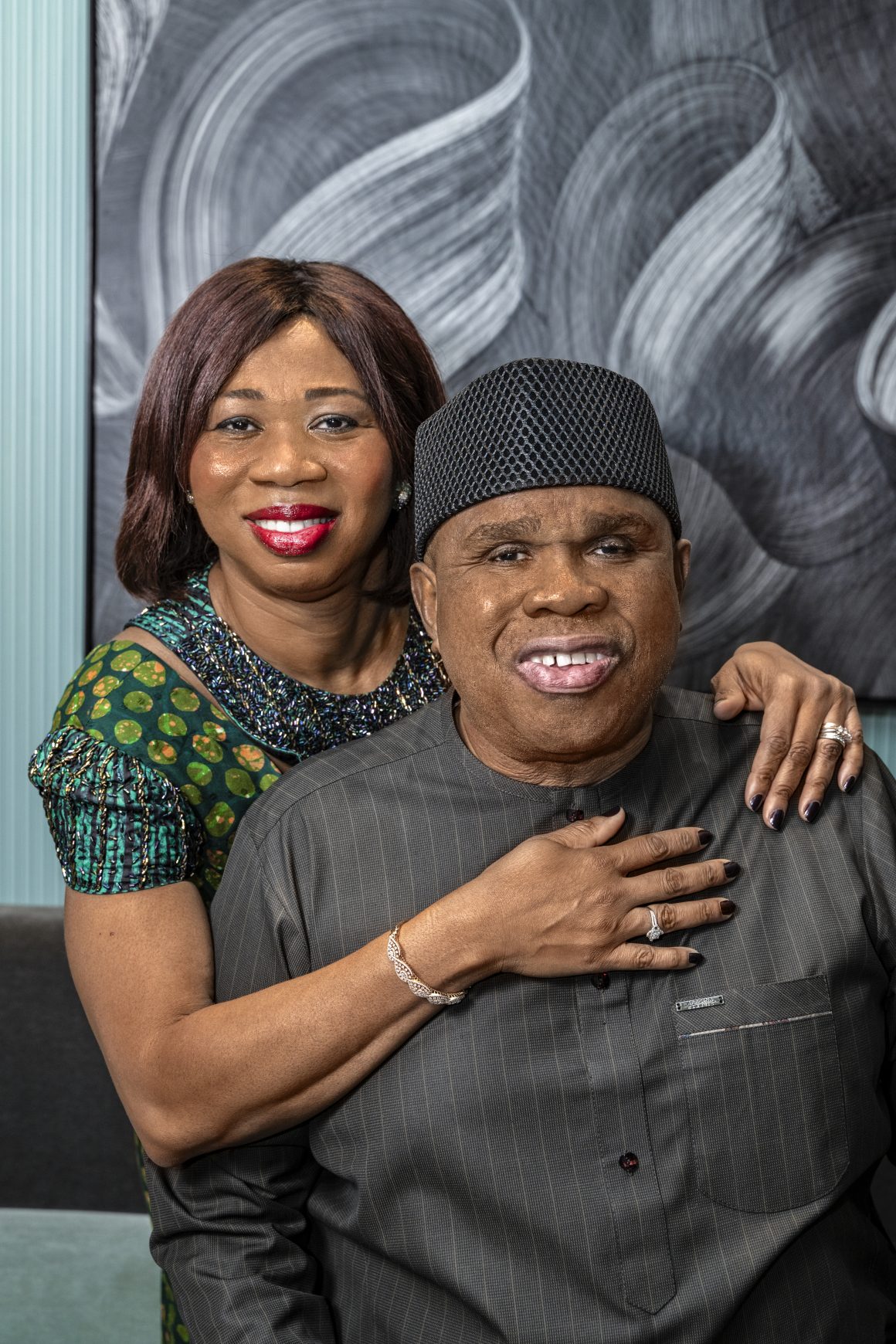
How does climate change impact Afreximbank’s exposure to key sectors, especially the agricultural sector?
The response of non-African financiers to the climate change issue is actually creating opportunities for the Bank to provide much-needed support to key sectors Africa’s economy.
Afreximbank, and the African Petroleum Producers’ Organization (APPO) are establishing the Africa Energy Bank (AEB) which will aim to fill the funding gap created by the departure of traditional financiers of oil and gas projects in Africa. The AEB will ensure that Africa’s rich energy resources are utilized effectively to support the continent’s development while also investing in renewable projects to promote a sustainable energy future.
The Bank’s Export Agriculture for Food Security (ExAFS) initiative is also helping to deal with the food insecurity challenges associated with the climate change, committing US$2 billion to boost production, processing, and intra-African trade in agricultural products and provide African farmers and agribusinesses with opportunities to access larger markets across the continent.
In terms of proactively combatting climate change, fundamentally, the AfCFTA will help reduce emissions by regionalising trade and creating value chains that support Africa’s net-zero goals. The Bank will also push for greater utilization of blended finance, green bonds, and concessional funding to support the continent’s climate action agenda.
Afreximbank has also been at the forefront of advocating for the immediate operationalization of the Loss and Damage Fund, ensuring that African countries, who are among the hardest hit by climate disasters, receive compensation for the economic and social losses caused by climate change. The Bank will advocate for fair compensation mechanisms that address the long-term impacts of extreme weather events on African communities, economies, and infrastructure.
Can you provide an update on the progress of the AfCFTA (African Continental Free Trade Area) and how Afreximbank is involved in financing cross-border trade under this Agreement?
The AfCFTA is making steady progress. In February 2022, the AfCFTA Secretariat launched the Guided Trade Initiative (GTI), as an interim measure to kick-start trade among interested State Parties. From a pilot that began with 7 countries, it has expanded to about 31 countries testing AfCFTA trading documents and procedures. I commend the AfCFTA Secretariat for the creativity in ensuring that trading commences under the Agreement.
Afreximbank continues to work closely with the AfCFTA Secretariat, the African Union Commission and other partners, to roll out critical institutional structures relevant to accelerating intra-African trade. Most notably, we have created and formally installed the AfCFTA Adjustment Fund, which aims to cushion African countries against the potential revenue losses caused by tariff removals and retool critical industries towards trading within the continent. Fund mobilization has commenced for various components of the Fund, with the Bank having already committed US$10 million towards the Base Fund and another US$1 million for the operationalization of the Fund. We have also made progress in the rollout of the Pan-African Payment and Settlement System, which consolidates 41 payment systems, delivering frictionless cross-border payments.
Recently, we featured 8 prominent women with leadership roles at Afreximbank, all under your leadership. Tell us why you are a big advocate for women and What will you say it’s important to include women in leadership role in finance and any other industry?
Equity and fairness are important pillars of Afreximbank’s culture. About 40% of our entire workforce are women, with 51 holding senior management positions, and we continue to enhance this balance. We also have a concerted focus on encouraging and supporting female entrepreneurs and young people, including through the provision of education and financing, and a dedicated SME creative economy programme.
What legacy will you be leaving behind when you finish your tenure as President and Chairman of Afreximbank?
Legacy? Well, it is said that “Legacy is not leaving something behind for other people. It’s leaving something behind in other people.” It is a view that I subscribe to. Physical edifices are only temporary, but ideals and values are most enduring. Yes, we have transformed Afreximbank over the past decades to become a globally recognized, continentally systemic institution. We have created a sizeable resilient bank, transformed the industrial landscape of many African economies and built a crisis-proof health system. The most enduring legacy for me is a restoration of a belief in ourselves, a belief that we can take our destiny in our hands, by hard work, determination and absolute commitment, and finally, that we can deliver our economies from colonial lethargy and economic deprivation.

